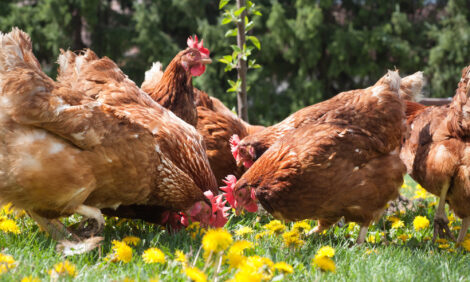



Brexit Under Discussion Between IFA, UK Farming Unions
UK - IFA President Joe Healy attended a meeting of UK farm leaders hosted by the Ulster Farmers’ Union in Co Down last week to discuss the implications of Brexit and to co-ordinate the approach of farm leaders to the negotiations.The meeting will be attended by the President of the UFU Barclay Bell, the NFU President Meurig Raymond, the NFU Scotland President Andrew McCornick and the NFU Wales President Stephen James.
The IFA President will set out the key priorities for farming and food in the IFA policy paper Brexit: The Imperatives for Irish Farmers & the Agri-Food Sector.
Mr Healy said, “There is a strong awareness of the importance of the British market for our food exports, but the level of trade and co-operation between North and South is also significant. The shared land border and geographical closeness has led to the development of a highly-integrated agri-food sector, with large volumes in both finished products and products requiring further processing.”
There is a strong view among all farm leaders of the importance of placing Ireland's issues at the top of the agenda. They will be working closely as the Brexit negotiations evolve to insist that their political leaders have farming and food at the heart of the discussions.
IFA wants to maintain the closest possible trading relationship between the UK and EU, while preserving the value of the UK market; and a strong CAP budget following the UK’s departure, which is critical for farm incomes, farm output and economic activity in rural Ireland.
Mr Healy said the disruption to trade between the Republic and the North, and Ireland and Britain, would be minimised by the UK remaining within the Customs Union. However, if the UK exits the Customs Union, there must be a Comprehensive Free Trade Agreement between the EU and UK, which would include the following specific elements for agriculture and food:
- Tariff-free trade for agricultural products and food;
- Maintenance of equivalent standards on food safety, animal health, welfare and the environment; and
- Application of the Common External Tariff for imports to both the EU and UK.
Mr Healy said, "The threat of Brexit is the most significant challenge facing our farming and food sector in the history of the State, with 40 per cent of our food exports going to the UK." He said farmers expect the Irish Government to launch a major diplomatic offensive at EU level that places its issues at the heart of the negotiations.
“The implications of a hard Brexit are stark: the ESRI estimates a potential reduction of EU trade to the UK of over 60 per cent for dairy and 85 per cent for meat. Translating this to an Irish context would mean a fall of €1.5bn in meat exports, with dairy exports falling by over €600m.”
Irish farming and the agri-food sector is particularly vulnerable to Brexit due to:
- A high dependence on the UK market;
- High EU tariff protection applying to major agricultural products;
- The land border with Northern Ireland, with the potential to disrupt trade flows, and undermine animal health co-operation; and
- The importance of the CAP budget to farm income – UK a net contributor
IFA will hold a major Brexit event on Monday, 24 April next, ahead of the crucial EU Summit on Saturday, 29 April, at which EU leaders will discuss their negotiating position. EU Commissioner for Agriculture Phil Hogan, the Minister for Agriculture Michael Creed, IFA representatives and industry leaders will speak at the event in Goffs, Co Kildare which will be attended by over 600 farmers.









